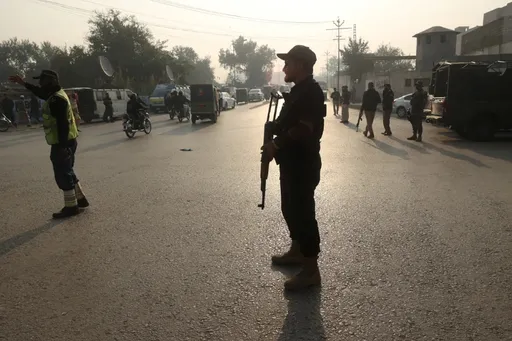Israeli Prime Minister Benjamin Netanyahu has affirmed that the parliament, Knesset, will vote next week on his government-proposed judicial reform bill.
Netanyahu's speech came as tens of thousands protested on Thursday against his coalition government's plan to reform the judiciary.
Netanyahu affirmed that next week's vote will take place on the selection of judges as part of the judicial reform plan, according to The Jewish Press.
"The law to change the appointment of judges [judicial reforms] will be submitted to the Knesset next week," Netanyahu said, noting that the bill "will restore the right balance between authorities.”
Referring to the daily anti-government protests, Netanyahu said, "In order to prevent a rift in our nation, each side must take seriously the claims and concerns of the other."
He also said the judicial reform bill has already been amended, as previously demanded by Israeli President Isaac Herzog.
"We cannot allow any disagreement, no matter how sharp, to jeopardise the common future of all of us," he said. "We must not only reject violence, but we must condemn incitement."
He also stressed the significance of "litigation and obtaining as broad a consensus as possible" as the best ways for reform.
READ MORE:Israel makes arrests as thousands protest amendment to Basic Law
His opponents quickly rejected the speech.
The grassroots protest movement said it would press ahead with the demonstrations, which have taken place weekly for the past three months.
Netanyahu "instead of stopping the legal coup, decided to continue with the hostile political takeover of the Supreme Court," it said.
Opposition leader Yair Lapid said Netanyahu made clear he has "no intention of holding true dialogue." He called on "responsible" members of Netanyahu's Likud party to speak up against the plan.
The reforms were announced by Justice Minister Yariv Levin in January, days after Netanyahu's government took office, a coalition with ultra-Orthodox Jewish and extreme-right allies which analysts have called the most far-right in the country's history.
Mass protests have gripped Israel over a planned overhaul of the judiciary which would give the hard-right nationalist government decisive sway in picking judges and limit the Supreme Court's power to strike down laws. Critics say it would weaken Israeli democracy and give unchecked powers to any government.
Lawmakers earlier on Thursday approved legislation restricting grounds for declaring a premier unfit for office, a move opposition chief Yair Lapid called "a personal law" to protect Netanyahu, who is on trial for corruption, which he denies.
READ MORE: Biden in call with Netanyahu expresses 'concern' over judicial reform plan
Defence Minister Gallant summoned
Earlier on Thursday, Netanyahu summoned Defence Minister Yoav Gallant to his office, following Gallant’s statements against the judicial reforms, according to Hebrew media.
Gallant was expected to give a speech on Thursday evening to call for a halt to the judicial overhaul's legislation process, the Hebrew daily Yedioth Ahronoth reported.
However, Gallant cancelled his speech after his meeting with Netanyahu.
"At the prime minister’s request and in light of his planned statement this evening, the minister of defense is delaying his statement at this stage," Gallant's office said in a statement according to the daily Times of Israel.
It said Gallant recently provided Netanyahu with disturbing data regarding the reform plan’s impact on the willingness of officers and soldiers for reserve service in the army.
In a related context, the Israeli police said they had arrested 26 demonstrators in Tel Aviv on suspicion of violating the law.
They added that they "arrested 10 demonstrators in the central region on charges of disorderly conduct."
According to the Israeli daily Haaretz, the police had arrested 87 demonstrators across Israel.
Israel has been experiencing mass protests for the past 12 weeks against the government's judicial reform plan.
Some reservists rejecting call-ups for training
In a letter circulated to the Israeli media, hundreds of protesters describing themselves as volunteer reservists said they were now refusing call-ups in response to the planned legislation.
The increasing numbers of reservists declaring they may refuse to train or serve underlines the deep splits opened up by the judicial overhaul plans in Israel, where the military holds a hallowed place in society.
Most Israelis are conscripted into the military for two to three years, and some continue as reservists into middle age. While reservists have helped Israel prevail in a string of wars, the army has relied recently on standing forces.
But reservists are seen as especially valuable to the armed forces given their maturity and accrued skills. They can be punished for ignoring a call-up, though this rarely happens.
Government leaders have said refusing military service is a red line.
"There is no place for refusing to serve," Netanyahu said in a press conference. "Refusal endangers our national security and the personal security of each one of us."
READ MORE:Statement calling Palestinians 'an invention' a provocation: Türkiye























